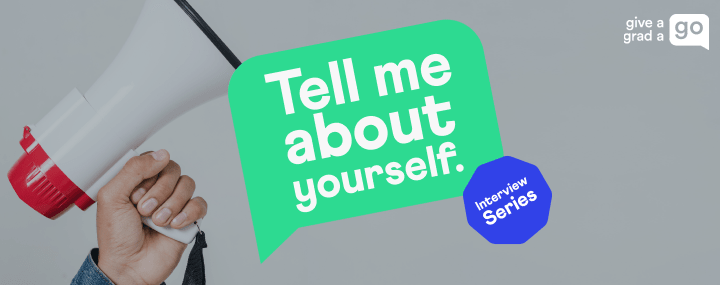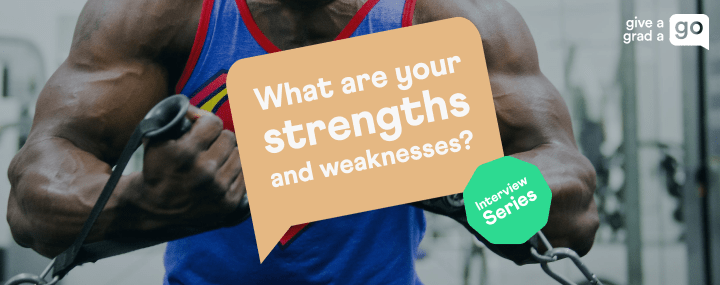What are your biggest strengths and weaknesses?
This question is one of the most common sales interview questions for freshers and it’s useful for employers for several reasons, they want to find out how you deal with difficult questions, to test your composure and communication abilities and see how you sell yourself – all essential for graduate sales roles.
In your answer, you want to make sure you’re highlighting your biggest strengths that are relevant to sales roles and when listing weaknesses turn them into positives.
With all entry level sales interview questions, make sure you’re supporting your statements with evidence, whether that’s a previous experience or a skill you developed through university, etc.
Your answer to this question is your chance to sell yourself to an employer, you want to show that you can confidently get points across and engage an employer.
Employers will be judging here if they think you can successfully sell their service or product to clients, so it’s essential to nail this question.
Some of the best strengths to highlight are communication and interpersonal skills.
With sales roles whether it’s business development, recruitment, or door-to-door sales, you’ll constantly be talking to a variety of different people, so it’s essential to show you’re a confident and effective communicator.
Problem-solving abilities are essential with sales roles, you may face difficult situations such as demanding clients, and tricky deadlines.
You want to show an employer that one of your biggest strengths is your ability to cope well under pressure and think logically to take the best course of action.
Showing you can instil trust in people is another great strength to highlight when answering this question. With sales roles, you need to create great relationships with clients and present yourself as a trustworthy individual to successfully sell the company’s product or service.
Show an employer how you’ve previously built great relationships in the past, whether it’s from working in hospitality and having loyal customers or you held a leadership position requiring others to trust you.
- Competitiveness
- Multitasking ability
- Listening skills
- Good customer service
- Independence and initiative
- Balance of assertiveness and patience
- Ambition and drive
- Empathy and honesty
- Confident and personable
- Networking skills
- Enthusiastic and passionate
- Resilient and adaptable
- Fast-learner
- Communications skills
- Organised and thorough
- Bold and inquisitive
- Optimistic and persistent
- Motivated and committed
- Helpful and courteous
- Problem-solving
- Trustworthy
-
Sales weaknesses examples
Speaking about your weaknesses is one of the hardest interview questions to answer, so preparation is key.
You want to choose your weaknesses carefully and make sure you don’t list a fundamental skill to the role.
Make sure you look thoroughly over the job description to look out for the essential skills, check out our blog post for tips on how to decrypt the job description.
Some good sales weaknesses examples to highlight, are skills that you can turn into a positive.
For example, perhaps you have a tendency to take on too much responsibility, resulting in stress, this shows you’re ambitious and don’t shy away from tasks, but you struggle saying no to things.
Or you try to please too many people, which shows you like to complete tasks required from you and keep people happy, but you do too much work outside your job description, which can leave you exhausted.
It’s also beneficial in your answer to tell an employer that you want to use their role as an opportunity to work on these weaknesses. This shows that you’re actively looking to develop your weaknesses and that you’re continually looking to self-improve.
For more tips and examples for how to answer ‘what are your greatest strengths and weaknesses check out our blog post.







